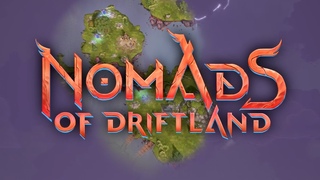NOMADS OF THE SAHARA 1950s NORTH AFRICA ARAB PEOPLES SAHARA DESERT 60044
This 1950’s era, color film visits the sandy dunes of the Sahara Desert and focuses mainly on the nomads and tribal people who live in its great expanse. Life is not easy in the desert and this film helps us appreciate that by visiting with some of its inhabitants. The film is narrated and starts with a panorama of the Sahara. Dunes can reach over 500 feet high. A man walks up a sand dune and a train rolls along the edge of the desert. The roads across the Sahara are of poor quality. Airplanes carry passengers and cargo over the dunes 1:17. Most houses are made of earth as wood is very precious in the desert. Clay is mixed with sand and dried to make bricks for homes 1:52. Dates and cereals are traded for spices and other products in the market 2:02. Away from the cities are millions of square miles of desert 2:25. Camels cross the desert 2:35. Camels feet on hand picked grain 2:45. Camel caravans cross the desert 3:15. There are sometimes grassy plains at the foot of mountain slopes 3:30. Nomads gather and cross the desert together 3:50. Travelers, the nomads tend to the wandering flocks found in the desert 4:10. Nomads set up camp 4:30. Coffee is ground with a pestle 4:35. Wool from the flocks are separated and then made into yarn which is woven into blankets 5:15. Oases are rare in the desert 5:30. Grains are harvested by hand and threshed by camels 5:54. The palm tree is very important in the desert as it creates the only shade for miles 6:20. Man climbs a palm tree to collect palm fronds 6:35. Date palms provide food and a boy climbs the tree to retrieve the fruit 6:57. A boy artificially pollinates a tree so it bears more fruit 7:20. Dates are sorted and dried 7:35. Boy carries water in buckets 8:00. A small stream runs through the desert 8:32. A man gets water from an artesian well 8:55. Divers keep wells free from sand 9:15. The diver submerges into the well with the help of a guide rope 9:27. The diver warms up by the fire 9:48. Helpers pull a rope from the well, attached to a bucket full of sand 10:05. Men extract water from the ground and create channels to allow it to flow 10:45. Jeeps, trains, trucks, and jeeps cross the desert 11:07. Camels enter an oasis 11:27. The Sahara, meaning the ‘Greatest Desert’, is a desert located on the African continent. With an area of 9,200,000 square kilometers (3,600,000 square mi), it is the largest hot desert in the world and the third largest desert overall after Antarctica and the Arctic. The name ’Sahara’ is derived from the Arabic word for “desert“, ṣahra. The desert comprises much of North Africa, excluding the fertile region on the Mediterranean Sea coast, the Atlas Mountains of the Maghreb, and the Nile Valley in Egypt and Sudan. It stretches from the Red Sea in the east and the Mediterranean in the north to the Atlantic Ocean in the west, where the landscape gradually changes from desert to coastal plains. To the south, it is bounded by the Sahel, a belt of semi-arid tropical savanna around the Niger River valley and the Sudan Region of Sub-Saharan Africa. The Sahara can be divided into several regions, including the western Sahara, the central Ahaggar Mountains, the Tibesti Mountains, the Aïr Mountains, the Ténéré desert, and the Libyan Desert.
We encourage viewers to add comments and, especially, to provide additional information about our videos by adding a comment! See something interesting? Tell people what it is and what they can see by writing something for example: “01:00:12:00 -- President Roosevelt is seen meeting with Winston Churchill at the Quebec Conference.“
This film is part of the Periscope Film LLC archive, one of the largest historic military, transportation, and aviation stock footage collections in the USA. Entirely film backed, this material is available for licensing in 24p HD, 2k and 4k. For more information visit


















![NOMADS - NOMADS [Full Album]](https://sun9-17.userapi.com/1jjqaBT0kz_I8-P9hWhrfwJm5j-qN9X_isJ_JA/cO3zAao7nbk.jpg)




